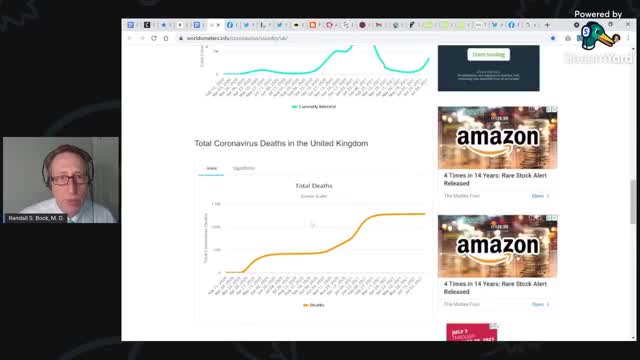Welcome to a world that’s constantly changing, a world where emergencies can strike at any moment. But, how do we prepare for the unexpected? This article is your guide to understanding the essence of readiness for emergencies. We’ll explore topics like the Delta variant, vaccine safety, societal impacts, privacy concerns, and the power of critical thinking. We’re in this together, and it’s time to be ready for whatever comes our way.
Table of Contents
Delta Variant Concerns
The Delta variant, with its buzz in the news, has got everyone talking. How much do you know about it? We’ll dig into its emergence, how it spreads, and its potential impact. But here’s a reassuring fact: while it’s highly transmissible, the chances of it being fatal are relatively low.
Vaccine Effectiveness and Safety
Vaccines are our shields against the pandemic, but questions arise about their safety. Let’s distinguish between effectiveness (yes, they work!) and safety (ensuring they’re safe for you). Honest conversations about vaccine side effects are essential. It’s about making informed choices for your well-being.
Beyond Case Numbers
Numbers can be deceiving. When dealing with a health crisis, we need to look beyond the reported case numbers. Hospitalizations, deaths, and societal impacts matter too. A holistic approach is key to understanding the full picture.
A Closer Look at Sweden
Sweden’s COVID-19 strategy raised eyebrows. They aimed for herd immunity, allowing the virus to spread among the young. Was it a success or a stumble? We’ll compare their approach with other European countries, exploring the results.
Societal Unrest in South Africa
It’s not just about the virus; societal tensions can boil over too. South Africa experienced ethnic strife and riots. High unemployment and historical divisions played their part. This serves as a stark reminder that emergencies have far-reaching consequences.
Surveillance and Privacy
Privacy matters, even during emergencies. Lately, there’s been talk about surveilling anti-vaccine messages. But where’s the line between safety and personal freedom? It’s a debate we must weigh carefully.
The Need for Critical Thinking
Times of crisis demand critical thinking. It’s about asking questions, challenging assumptions, and embracing diverse perspectives. Critical thinking not only guides your choices but also helps us collectively respond better to emergencies.
The Zika Example
The Zika virus outbreak held the world’s attention for a while. It highlighted how unique situations require unique thinking. The importance of analyzing context and thinking critically is evident from this example.
COVID-19 Impact by Age
The virus doesn’t discriminate, but its impact varies with age. It can be deadly for the elderly but less severe for the young and healthy. Understanding these differences helps in resource allocation and tailored responses.
Media Influence
Media shapes public opinion during emergencies. It sets the narrative, raises concerns, and influences our actions. But remember, media isn’t infallible. We should always question and seek the full story.
Seeking Feedback and Sharing
Open discussions, feedback, and sharing information are the lifelines of readiness for emergencies. Embrace diverse perspectives and spread knowledge. This collaboration ensures we’re better prepared for the unknown.
Conclusion
In a world where uncertainties loom, preparedness is our greatest ally. Critical thinking, open conversations, and the courage to question narratives are the tools we need. The journey to readiness might seem complex, but it’s one we must undertake to navigate our ever-changing world.
FAQs
Critical thinking allows individuals to question narratives, challenge assumptions, and make informed decisions during crises.
Sweden’s unique approach provides insights into pandemic management strategies and their outcomes.
Media can shape narratives, raise concerns, and influence behavior during crises, but it has limitations and potential biases.
Open conversations about vaccine safety help address concerns, make informed decisions, and build trust.
Diverse perspectives and feedback contribute to a comprehensive approach, ensuring readiness for unforeseen crises.
